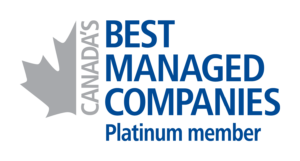How To Choose A Third Party Logistics Provider
Third party logistics (3PL) companies are increasingly becoming an integral part of the global supply chain and are considered as strategic vendors.
The growth of companies choosing to outsource either part or all of the management of their supply chain has been steady since the 1980s, allowing companies to streamline efficiencies. The major benefit is that outsourcing provides the organization the opportunity to concentrate on their core competencies, with an end result in mind to save time, reduce overhead costs, and improve the quality of service to customers and ultimately the end users.
The decision to choose a 3PL depends on a number of factors and the reasons vary from one business to another. Needs may range from requiring limited services to the broader scope of the supply chain.
In making the decision to outsource, the company should consider selecting a third party that can provide a service which fits their requirements for transportation and warehousing for the right product, in the right place, at the right time, in the right condition and with the right attitude.
In choosing a 3PL it is crucial to consider certain criteria. This checklist can assist you in choosing an effective logistics provider:
Consider These Criteria:
- Reliability
- Asset Based
- On Time Performance
- Value Proposition – Does the 3PL have the ability to provide a custom tailored system formulated to provide a comprehensive solution for your supply chain needs? Can they assist with reducing costs through efficiencies?
- Trustworthiness
- Flexibility
- Customized Service
- Financial Stability
- History and Industry Experience – what is their track record, including ethical performance.
- Assist in reduced inventory costs through expert management.
In a recent survey, the most important indicators for choosing a particular 3PL were related to responding to service requests, quality of management, and track record of ethical performance.
The three least important criteria were investment in state-of-the art technologies, size of firm, and national market coverage.
Some key questions companies should consider when selecting a 3rd party logistics provider are:
Corporate Alignment – Does my company and the 3PL we will work with share the same values, such as ethics and responsibility; and can we understand and agree upon what the specific nature of the partnership arrangement will entail? Can I trust the 3PL when I will need it the most?
Infrastructure of the 3PL – It is important that the providers have the physical resources and accessibility to inventory information that will meet the customer’s needs.
The supply chain solutions provider’s responsibility should be also focused on personalized service.
Simplified Solutions & Flexibility – A third-party provider that is the right fit has as one of its objectives – customizing services to meet the needs of each business partnership. This can range from flexibility, to scheduling, to warehouse specialized requirements and IT functions, to the final stage of delivering your product to market.
Measuring Success – Offering a Value Proposition that is measurable is critical. Providing an offering with key performance indicators (KPIs) that show better results over similar competitive offerings could be a deal breaker.
Savings: The complexities of getting goods to their destinations is the core competency of the 3PL. This allows the customers to focus on their core business whether it may be manufacturing, retail or what they know best. Statistics show that companies have reduced costs as much as 15% for logistics when outsourcing to a 3PL.
Selecting the right third party logistics provider as your strategic vendor is vital to protect and enhance your company’s supply chain results.


